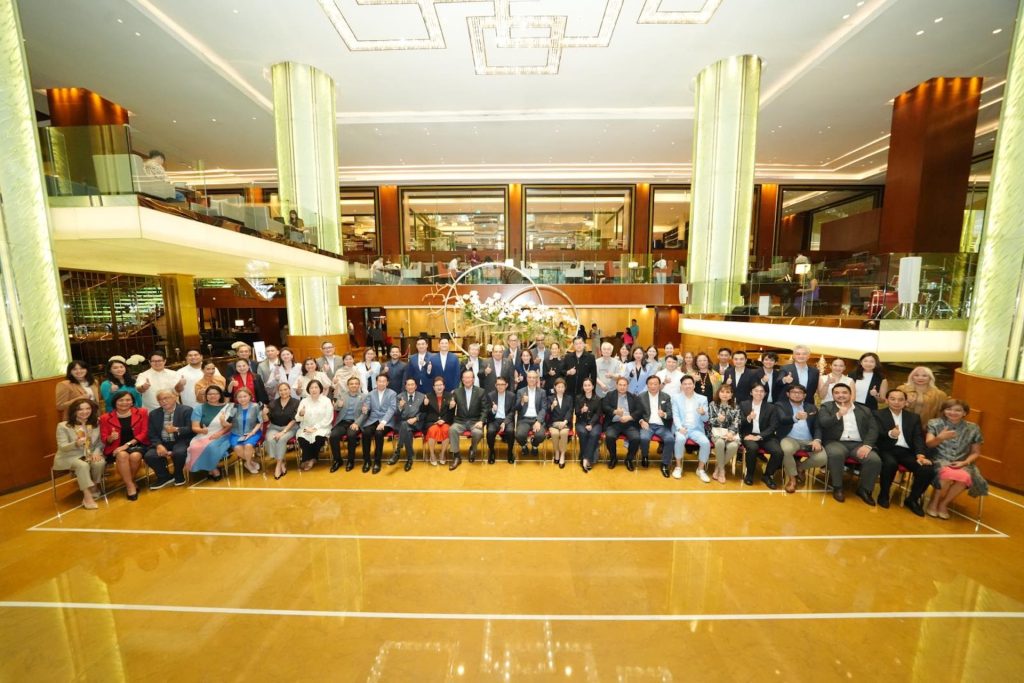
Prosperity Through Digital Literacy for All
October 16, 2025
Rebuilding Trust Through Inclusive Growth
October 28, 2025
The Private Sector’s Power to Drive Inclusive Prosperity in the Region
I had a very productive Wednesday last week at the meeting with some of the country’s leading business leaders and private sector organizations. They were there in full force, all 80 of the heavy hitters representing various sectors and companies, to find out how they can engage with the region next year, when the Philippines hosts the ASEAN Summit and related meetings, and is chair of the ASEAN Business Advisory Council (ASEAN-BAC), the private sector body tasked to advise governments toward regional economic cooperation and integration.
As we approach this pivotal event in 2026, large corporations are aware of the immense potential of this once-in-a-decade opportunity. The benefits extend far beyond mere visibility; they encompass a unique chance to shape the economic and social agenda of the ASEAN region while building meaningful partnerships that can drive sustainable growth.
The private sector has always been a cornerstone of economic development, playing a vital role in addressing contemporary challenges. From job creation to revenue generation, the contributions of businesses are manifold. The ASEAN-BAC is a platform for each country’s private sector to amplify their voices on a regional scale.
The private sector’s forte has always been innovation, efficiency and best practices with real-world perspectives. Its input can benefit individual businesses and enhance the overall competitiveness of the ASEAN market. At a time characterized by rapid technological advancements, shifting consumer preferences and growing political instability across the region, collaboration between the public and private sectors becomes even more critical for driving innovation and sustaining growth.
The private sector, with its resources and expertise, can advocate for regulatory reforms and initiatives that can be sustained and that also benefit the broader community. And while some may view the ASEAN event next year as yet another reason to dread traffic jams, on a longer view, it is a platform for dialogue and collaboration whose impact will be felt for years to come.
Already, the ASEAN-BAC has several platforms for engagement. There are the major events during the chairship, such as the ASEAN Business Investment Summit, the ASEAN Business Awards and the Interface with ASEAN Leaders and Dialogue Partners. And for longer-term engagement, ASEAN-BAC chairships also include legacy projects that mark the year. There are already several in the pipeline: the ASEAN Food Security Alliance, an online 3M (money, markets and mentorship) platform designed for ASEAN entrepreneurs, initiatives on the digital economy and planned regional centers for excellence to be hosted in the Philippines, specifically for MSME development, the creative industries and gender equality and women empowerment.
From the discussions with the private sector so far, the ASEAN economic agenda seems to be increasingly centered on sectors that hold potential for significant growth. MSMEs and agriculture and food security are at the forefront of the agenda being championed by ASEAN-BAC Philippines. The focus on women’s role in the regional economic agenda is gaining ground, as is the untapped potential of the youth sector, particularly in line with human capital development. Other sectors put forward for prioritization in the regional agenda are energy, technology, intellectual property and transportation and infrastructure.
These perspectives illustrate why I find engaging with my peers in the private sector so invigorating. Their years of experience – managing teams, negotiating deals and navigating challenges – offer insights that cannot be gained through formal training alone.
Industry organizations also represented their members well. The Philippine Franchise Association’s Chris Lim pointed out how franchising supports our broader goal of MSME development, and how it would be a good idea to work with the five franchise associations within ASEAN. Same with our friends in retail, ably represented by Rosemarie Ong of the Philippine Retail Association, who offered their insights on cross-border controls and non-tariff barriers.
Our friends in the Filipino Chinese business community – represented by the FFCCCII – see much promise in increasing engagement within the ASEAN-BAC platform with their counterparts in the other ASEAN countries and China. The PCCI also expressed its aim to strengthen regional partnerships and align initiatives with the ASEAN-BAC. Individual insights also offered fresh perspectives, such as our friends from Tetra Pak, who believe that processing and packaging technology can do so much to boost food security in the region.
SM’s Tessie Sy-Coson, also a former council member of ASEAN-BAC, made an excellent point in saying that the continued peace and stability in ASEAN can, in part, be attributed to the strength of its connectivity. And when we speak of “connectivity,” she pointed out, this is not confined to physical (or digital) infrastructure, but also “as a reflection of regional solidarity – a sense of brotherhood, sisterhood and enduring friendship.”
While participation in the coming activities of ASEAN does indeed bring so many opportunities, let us not forget that partnerships can lead to impactful change. The benefits extend far beyond visibility; they encompass meaningful participation in shaping the economic and social landscape of the ASEAN region and driving positive change.
Originally Published in Philippine Star


2/F RFM Corporate Center, Pioneer cor. Sheridan Sts. Mandaluyong City, Metro Manila, Philippines

